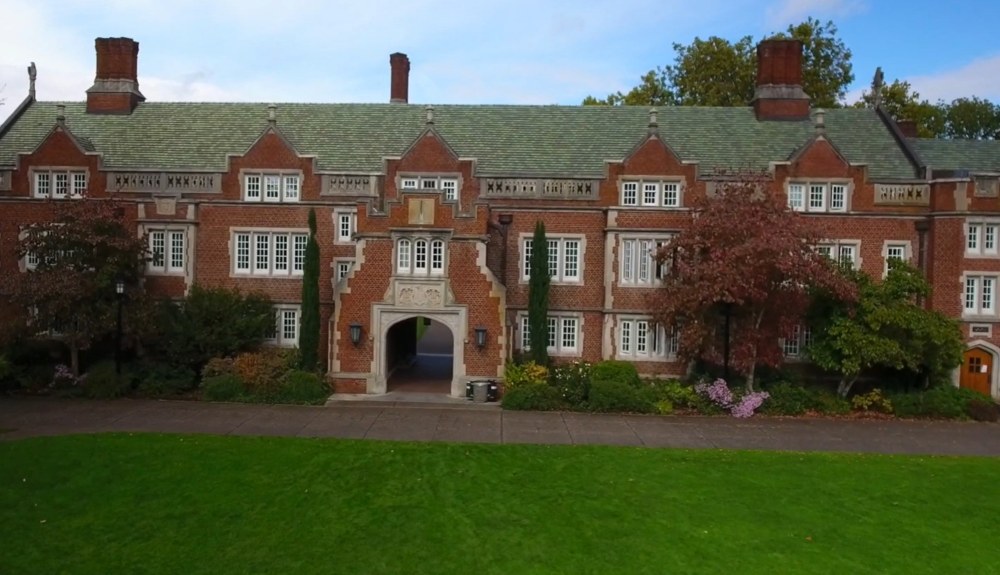When an art history instructor at Hamline University in St. Paul, Minn., included in her lecture an image of a 14th Century painting purporting to be the Prophet Mohammad, a Muslim student in the class went to the school’s administration claiming offense and an insult to Islam. The instructor, Erika Lopez Prater, was fired.
Lopez Prater knew that for many Muslims, depictions of the Prophet are always sacrilegious and, as the New York Times reported, “she warned that images of holy figures, including the Prophet Muhammad and the Buddha, would be shown in the course. She asked students to contact her with any concerns, and she said no one did.”
Nevertheless, the school quickly took the side of Muslim students, including those not in the course, and stated that presenting the artwork was “Islamophobic.” Again, as the New York Times reported, Hamline’s president sent an email with this claim: respect for the Muslim students “should have superseded academic freedom.” In other words, the existence of their views trumps free speech.
So what happened here? The rights – power – of a religious group – at another time or place it could be any religion or even political group – buried a fundamental American value – freedom of speech – in a not uncommon dispute.
The question is not, as it was mostly played out, whether Lopez Prater’s academic freedom and freedom of speech were violated or that on the other hand as the students’ claim that Islam was attacked. The underlying issue is what, if any, circumstances allow groups to overpower freedom of speech. And group power is a huge issue, for which our current cultural conflicts – like this incident at Hamline – are a proxy.
But there is a way to keep power out of such free-speech arguments: those who object to what they might hear or see, don’t have to hear or see it. And importantly, unless they’re willing to debate what’s presented, it’s their responsibility, their obligation, to take action to avoid what they don’t want to see or hear, to avoid what offends them. Failing that, they have no rights – and should not have the power – to claim what’s said or written or portrayed in art should not exist.
Discover more from Post Alley
Subscribe to get the latest posts sent to your email.

To agree with the president of the university in this post seems to mean that any of us has the power, and the right, under some circumstances, to ban anything we find offensive, regardless of the consequences. It goes beyond free speech. I think it also conflates religious beliefs with culture, which are not the same, if examined carefully and thoughtfully.
To heap folly on folly, the art was more or less provably not islamophobic. It was produced by an islamic artist, in a cultural tradition of centuries of renditions of Mohammed that I believe continues to this day. Those administrators were cowards or fools.
Thank you for this very timely piece. It needs to be expanded to examine other incidents where too-tender-for-the-real-world students complain about professors and others at academic institutions. We have witnessed, far too often, the very real effects of cancel culture. Academic “leadership” becomes an oxymoron when students are allowed to run out anyone who challenges their worldview, or commits what students believe to be a high offense when such offenses are going to occur throughout life. Indeed, what and why one person finds offensive is precisely what ought to be examined in an academic setting.
Thank you for this reporting.
Free speech is paramount in such situations. I hope Lopez is pursuing this matter in court.
Over reaction by the school district only gives the culture war proponents more ammunition
I like to think Washington School Districts would never act so precipitously but they might.
Thank you for this important article.
(I know that for many people, one red brick college building looks just like another, but I’d be willing to bet that the photo at the top of this article is of Reed College.) https://www.google.com/search?client=firefox-b-1-d&q=Reed+College+Elliot+Hall#lpg=cid:CgIgAQ%3D%3D,ik:CAoSLEFGMVFpcE5la0pQVGQ1SXFvOE5iX1lSOGFNQ3lhdm9rbV9WNkNEMHRoOS1j
Absolutely, it’s Reed College. Though that’s actually the Old Dorm Block, not (the adjacent) Elliott Hall.
That’s my old home! (I lived in Kerr freshman year …)
The NYT reports that Hamline “walked this back.” More like they ran for cover.
https://www.nytimes.com/2023/01/17/us/hamline-lawsuit-prophet-muhammad-religion.html?searchResultPosition=1
Hi Dick! While I mostly agree with your concern here, I also wonder: Doesn’t power nearly always play a role in what we hear? Ron DeSantis is demonstrating this noisily in FL with “don’t say gay” bill; no CRT in schools policy; restriction on African-American AP curriculum; threats to New School faculty, etc.